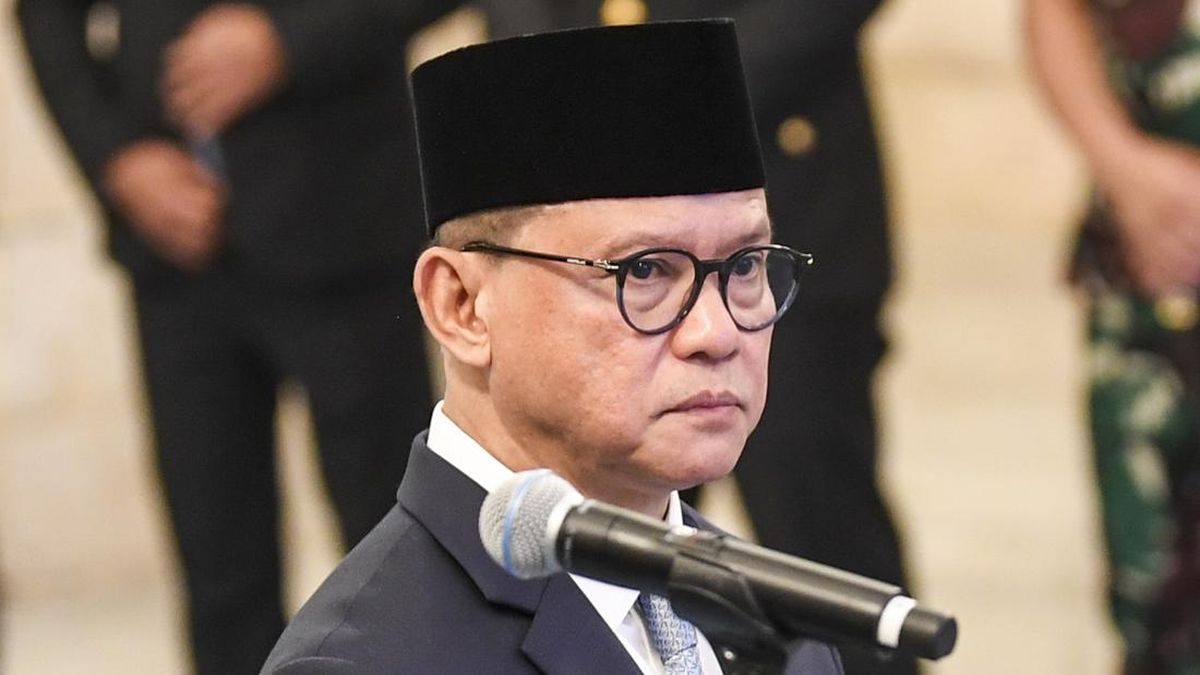For the first Albanese government timidity resulted in another bite of the cherry. But, unfortunately, caution is lingering as a second-term hallmark, despite a massive landslide that gave Labor open slather to effect wide-ranging change.
This month’s Economic Reform Roundtable should have been the vehicle for substantial reform. But, amid the Productivity Commission recommendations for tax reform, unions calling for curbs on negative gearing, the capital gains discount and the use of family trusts, business groups railing against too much change and suggestions that the transition from fossil fuels to renewables be speeded up, the government appears to have lost some chutzpah.

Treasurer Jim Chalmers and Secretary to the Treasury Jenny Wilkinson on Wednesday.Credit: Alex Ellinghausen
A day after Prime Minister Anthony Albanese talked down the roundtable’s significance, Treasurer Jim Chalmers also started hosing down expectations, sending a clear message around parliament: excited observers should curb their enthusiasm.
Beginning on August 19, the three-day Economic Reform Roundtable aims to build consensus on ways to improve productivity, enhance economic resilience and strengthen budget sustainability in the face of global uncertainty. It brings together a mix of leaders from business, unions, civil society and government. Some 900 submissions have been received and anticipations of change were running high.
But the Herald’s chief political correspondent Paul Sakkal said cabinet had become concerned about the huge expectations stoked, and the summit is expected to produce a handful of policies to which Chalmers would immediately commit. Speedier approvals for energy projects, cutting red tape and new incentives for home building were seen as quick wins with wide support from warring unions and business lobbies. More significant changes that gain support from assorted experts, captains of industry and unions will be put off for further examination.
The roundtable was already seen at risk of becoming a Canberra gabfest. But tax will undoubtedly be the elephant in the room, given Albanese’s refusal to consider changing the GST, a veto that is already tying one of the government’s hands behind its back. The exclusion of those major players in taxation and deregulation, states and territories, is another handicap.
For a summit considering Australia’s economic future, ignoring the GST seems blinkered, especially as economist Richard Holden and independent MHR Kate Chaney suggested to the Herald’s Shane Wright that a 15 per cent GST could deliver a $28 billion boost to government coffers while providing an annual $3300 rebate to all Australians as an offset.
However, almost all other taxes are on the table. The Productivity Commission has proposed a company tax cut for smaller businesses, while larger companies pay more.
New visions are required in a world where old certainties are quickly fading, and the one reality is that productivity is key to meeting future challenges. That said, courage and big ideas – including controversial reform of the GST – will help drive the Australian economy, not the risk aversion displayed by a Labor government too afraid for, or of, its own mandate to act for the greater good.


















































